|
|
 |
 |
 |
 |
 |
 |
 |
 |
|
|
|
 |
 |
|
July 11, 2002; Volume 8, Issue
13 |
| |
LOCAL
REPORT 

Audit
Reveals Cash Crisis at VDOT as State Turns to
Voters for Road
Money
|
 On July 10,
Virginia State Auditor Walter Kucharski released a
report finding that the state Department of
Transportation has completely failed to track the
money it gets and the money it spends. According
to the report, the agency consistently
underestimated project costs, failed to track
maintenance needs for the state's 56,000 mile road
network, approved construction projects before
identifying funding sources and rarely updated the
agency’s financial plans to reflect cost overruns.
The state audit attributes the lack of financial
accountability to top VDOT managers, finding that
they allowed road projects to move forward with
little oversight or information sharing between
construction and financial divisions. On July 10,
Virginia State Auditor Walter Kucharski released a
report finding that the state Department of
Transportation has completely failed to track the
money it gets and the money it spends. According
to the report, the agency consistently
underestimated project costs, failed to track
maintenance needs for the state's 56,000 mile road
network, approved construction projects before
identifying funding sources and rarely updated the
agency’s financial plans to reflect cost overruns.
The state audit attributes the lack of financial
accountability to top VDOT managers, finding that
they allowed road projects to move forward with
little oversight or information sharing between
construction and financial divisions.
Governor Warner ordered
an audit of the agency's finances after he took
office in January and discovered that VDOT could
not answer basic questions about its financial
accounts. Severe mismanagement forced VDOT to
remove $3 billion of projects from its original
$10.7 billion six-year transportation plan last
month. In addition, the agency will spend nearly
ten percent of its budget for debt service by 2006
as a result of having borrowed against future
revenues. Virginia's use of debt financing to
avoid revenue increases at the state level is an
increasingly common  tactic among the
states, and could portend a serious of serious
shortfalls in states all over the country. The
debt binge was sparked by the Innovative Finance
provisions of TEA-21, which many states have used
to advance new road projects. tactic among the
states, and could portend a serious of serious
shortfalls in states all over the country. The
debt binge was sparked by the Innovative Finance
provisions of TEA-21, which many states have used
to advance new road projects.
At the same time, state
officials have asked voters to approve an 11%
sales tax increase this November in order to raise
$5 billion for transportation projects. This
funding is not designed to meet current
shortfalls, but rather to fund new road projects,
several of which are not in any current plan, and
whose full costs have not been disclosed. The
Coalition for Smarter Growth, a coalition of
groups in the Washington D.C. metro region,
opposes the tax proposal, saying the funds will be
primarily directed towards instigating new highway
projects. They say the pitfall of the sales tax is
that it does not deal with land use, the
fundamental cause of traffic and
sprawl.
“We can spend all the
money we want; but until we address land use and
development issues, we will never solve traffic or
air pollution problems,” said Stewart Schwartz,
Executive Director of the Coalition.
For more information on the
VDOT audit, click here.
For more information about the
Coalition for Smarter Growth and the Northern
Virginia sales tax referendum, click here.
Written with contributions
from Nicola Wood of the Coalition for Smarter
Growth |
| |
DECODING TRANSPORTATION
POLICY & PRACTICE 
 |
The
Transportation Funding Loophole:
how
states underfund federal
programs |
| |
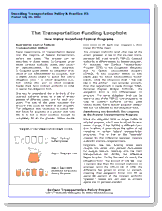 The fifth
installment in STPP's “Decoding
Transportation Policy & Practice” series
explains the process that allows states to under-
and overfund federal programs. The newest release
explores the implications of the growing loophole
on how states are spending federal transportation
dollars. The fifth
installment in STPP's “Decoding
Transportation Policy & Practice” series
explains the process that allows states to under-
and overfund federal programs. The newest release
explores the implications of the growing loophole
on how states are spending federal transportation
dollars.
Click
here to view the series. |
| |
|
REAUTHORIZATION NEWS 
 |
| TRB CMAQ
Report Released, Committee Recommends
Reauthorization |
 |
| A new Transportation
Research Board report finds that the Congestion
Mitigation and Air Quality (CMAQ) program is
valuable for local governments grappling with
unhealthy air and should be reauthorized. The
report comes at a time when new research indicates
that nearly half of the US population is exposed
to dangerous levels of air pollution that can
shorten human life by months or years. The
American Lung Association’s State of the Air
Report: 2002 finds that 143 million Americans are
breathing in unhealthy amounts of ozone pollution
linked to lung and heart disease.
Representing 4 percent of the
surface transportation program under TEA-21, CMAQ
is the only federally funded transportation
program explicitly created to help communities
meet the 1990 Clean Air Act Amendments. While the
TRB report refrained from discussing changes to
CMAQ funding levels under TEA-21 renewal, the
committee did recommend that air quality continue
to be the top priority for the program and that
increased consideration be given to longer-term
land use strategies. Key to the CMAQ discussion
now is how new pollution standards for particulate
matter and ground level ozone will affect program
funds and whether eligibility will be extended to
newly-designated nonattainment areas under the 8
hour ozone standard. The Senate Environment and
Public Works Committee is expected to hold a
hearing on CMAQ in late July.
To access “Special Report 264:
The Congestion Mitigation and Air Quality
Improvement Program: Assessing 10 Years of
Experience,” click here.
For more information on
impacts of air pollution on public health, visit
the American Lung
Association. |
 |
 |

ARTBA Clean Air Forum Challenges Conformity
Process 
|
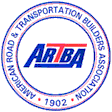 On June 27, the American Road and
Transportation Builders Association (ARTBA) hosted
a “national dialogue” on air quality and
transportation planning featuring remarks from
federal transportation officials, state and local
practitioners, congressional staff members, and
representatives of industry and environmental
groups. During the seminar, speakers discussed the
conformity process that holds transportation
planning accountable to federal air quality
standards. On June 27, the American Road and
Transportation Builders Association (ARTBA) hosted
a “national dialogue” on air quality and
transportation planning featuring remarks from
federal transportation officials, state and local
practitioners, congressional staff members, and
representatives of industry and environmental
groups. During the seminar, speakers discussed the
conformity process that holds transportation
planning accountable to federal air quality
standards.
While state and local
officials from Maryland, Washington, DC,
Charlotte, and Atlanta addressed efforts to
improve transportation and air quality
coordination through multi-modal investments and
better planning, not all participants suggested a
commitment to conformity standards. Senate
Environment and Public Works minority staff and
industry representatives raised concerns that the
conformity process is draining resources away from
transportation projects, indicating an attempt to
weaken conformity requirements in
reauthorization.
Michael Replogle,
Transportation Director for Environmental Defense,
noted that conformity is working well as a core
environmental accountability law in most regions
as a result of interagency cooperation.
To see a 1999 DOT-EPA study
documenting the positive impacts of conformity in
15 non-attainment areas, click
here. |
| |
| |
|
IN OTHER NEWS
 |
Capitol Area Ozone Appeal Loses
in Court  |
 |
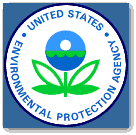 In a related story, a three
judge panel at the US Court of Appeals ruled on
July 2 that the Environmental Protection Agency
made an error when it gave the Washington, DC
region an extension to comply with federal air
quality standards for ozone. While the direct
effects of the ruling are unclear, it does open
the possibility for the federal government to pull
transportation funding for area projects and start
setting local transportation policies. In a related story, a three
judge panel at the US Court of Appeals ruled on
July 2 that the Environmental Protection Agency
made an error when it gave the Washington, DC
region an extension to comply with federal air
quality standards for ozone. While the direct
effects of the ruling are unclear, it does open
the possibility for the federal government to pull
transportation funding for area projects and start
setting local transportation policies.
The EPA has designated the
region (including the District of Columbia,
Southern Maryland, and Northern Virginia) a
“serious non-attainment area” due to its poor air
quality. After the region failed to meet federal
regulations for air quality in 1999, the EPA gave
local leaders until 2005 to come into
compliance.
For more information, click
here. |
 |

Georgia Northern Arc
Project on Hold  |
 |
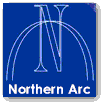 Planning for a
controversial new highway in Georgia called the
Northern Arc has come to an abrupt halt. Governor
Roy Barnes announced July 5 that the plans were
being put on hold to give state lawmakers a chance
to examine alleged violations of state ethics laws
on the $2.6 billion project. In his announcement,
Barnes restated his commitment to the proposed
highway, but recommended that the General Assembly
pass laws mandating that conflicts of interest be
made public and requiring those with conflicts to
recuse themselves from the planning
process. Planning for a
controversial new highway in Georgia called the
Northern Arc has come to an abrupt halt. Governor
Roy Barnes announced July 5 that the plans were
being put on hold to give state lawmakers a chance
to examine alleged violations of state ethics laws
on the $2.6 billion project. In his announcement,
Barnes restated his commitment to the proposed
highway, but recommended that the General Assembly
pass laws mandating that conflicts of interest be
made public and requiring those with conflicts to
recuse themselves from the planning
process.
For more information on the
Northern Arc and on these recent developments, click
here. |

California Assembly
Passes Auto Emissions Bill  |
| |
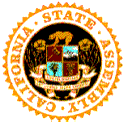 After a long and
expensive battle between environmentalists and the
automotive industry in California, a bill designed
to limit emissions of carbon dioxide and other
greenhouse gases has made its way to the desk of
Governor Gray Davis. The California Assembly
passed the measure on July 1 mostly along party
lines. The bill, if enacted, would require the
state Air Resources Board to set “maximum,
feasible and cost-effective reductions” for
greenhouse gasses on automobiles in the state.
Several other states, including Massachusetts, New
Hampshire, and Oregon, have passed laws aimed at
cutting carbon dioxide emissions from power
plants, but the California bill would be the first
in the nation designed to target pollution caused
by automobiles. After a long and
expensive battle between environmentalists and the
automotive industry in California, a bill designed
to limit emissions of carbon dioxide and other
greenhouse gases has made its way to the desk of
Governor Gray Davis. The California Assembly
passed the measure on July 1 mostly along party
lines. The bill, if enacted, would require the
state Air Resources Board to set “maximum,
feasible and cost-effective reductions” for
greenhouse gasses on automobiles in the state.
Several other states, including Massachusetts, New
Hampshire, and Oregon, have passed laws aimed at
cutting carbon dioxide emissions from power
plants, but the California bill would be the first
in the nation designed to target pollution caused
by automobiles.
California is currently the
nation's largest car market, accounting for
roughly 10% of all cars sold, and is also the only
state that has the power to pass air pollution
rules that are stronger than those set by the
federal government.
For more information from the
Washington Post, click here.
For more
information from the LA Times, click
here. |
 |
REPORTS &
RESOURCES 
 |
| New Resources Available from
NCBW |
| |
 The National Center
for Bicycling and Walking has two new resources
available. The first, a new report entitled
"Increasing Physical Activity Through Community
Design, A Guide for Public Health Practioners,"
details how to promote healthy lifestyles through
increased physical activities. The second is a new
round of workshops to provide Metropolitan
Planning Organizations with technical assistance
on community design for active living (sponsored
in part by The Robert Wood Johnson Foundation). Click here for more
information. The National Center
for Bicycling and Walking has two new resources
available. The first, a new report entitled
"Increasing Physical Activity Through Community
Design, A Guide for Public Health Practioners,"
details how to promote healthy lifestyles through
increased physical activities. The second is a new
round of workshops to provide Metropolitan
Planning Organizations with technical assistance
on community design for active living (sponsored
in part by The Robert Wood Johnson Foundation). Click here for more
information. |

|

Passenger Rail and
Communities |
 |
"Pulling Out All the Stops: The Real Cost
of Losing Passenger Rail Service in New Mexico"
documents the "profoundly negative effects" of
losing Amtrak service on seven local
communities—available at http://www.stationfoundation.org/.
|
|
ANNOUNCEMENTS 
 |
 |
Congress of
Pedestrian Advocates
 America Walks, the national
coalition of pedestrian advocacy organizations,
will convene the second National Congress of
Pedestrian Advocates on Tuesday, September 3, in
St. Paul, Minnesota, in conjunction with the
ProBike/ProWalk conference offered by the National
Center for Bicycling and Walking. The deadline for
the regular registration rate is July 26. For more
information, click
here. America Walks, the national
coalition of pedestrian advocacy organizations,
will convene the second National Congress of
Pedestrian Advocates on Tuesday, September 3, in
St. Paul, Minnesota, in conjunction with the
ProBike/ProWalk conference offered by the National
Center for Bicycling and Walking. The deadline for
the regular registration rate is July 26. For more
information, click
here.
|
| |
|
CALENDAR 
 |
 |
July 17
2:30
p.m.
Senate Subcommittee on Housing and
Transportation
Hearing on Special Transit
Needs
July 18
3:00
p.m.
Physical Activity and the Built
Environment policy briefing
For more
information, click here.
July 30
Senate EPW
Hearing
Transportation and Air
Quality |
| |
| |
| |
| |
| |
| | |
 | |
 |
 |
 |
 |
 |
 |
 |
 |
 |
 |
 |
| |
|